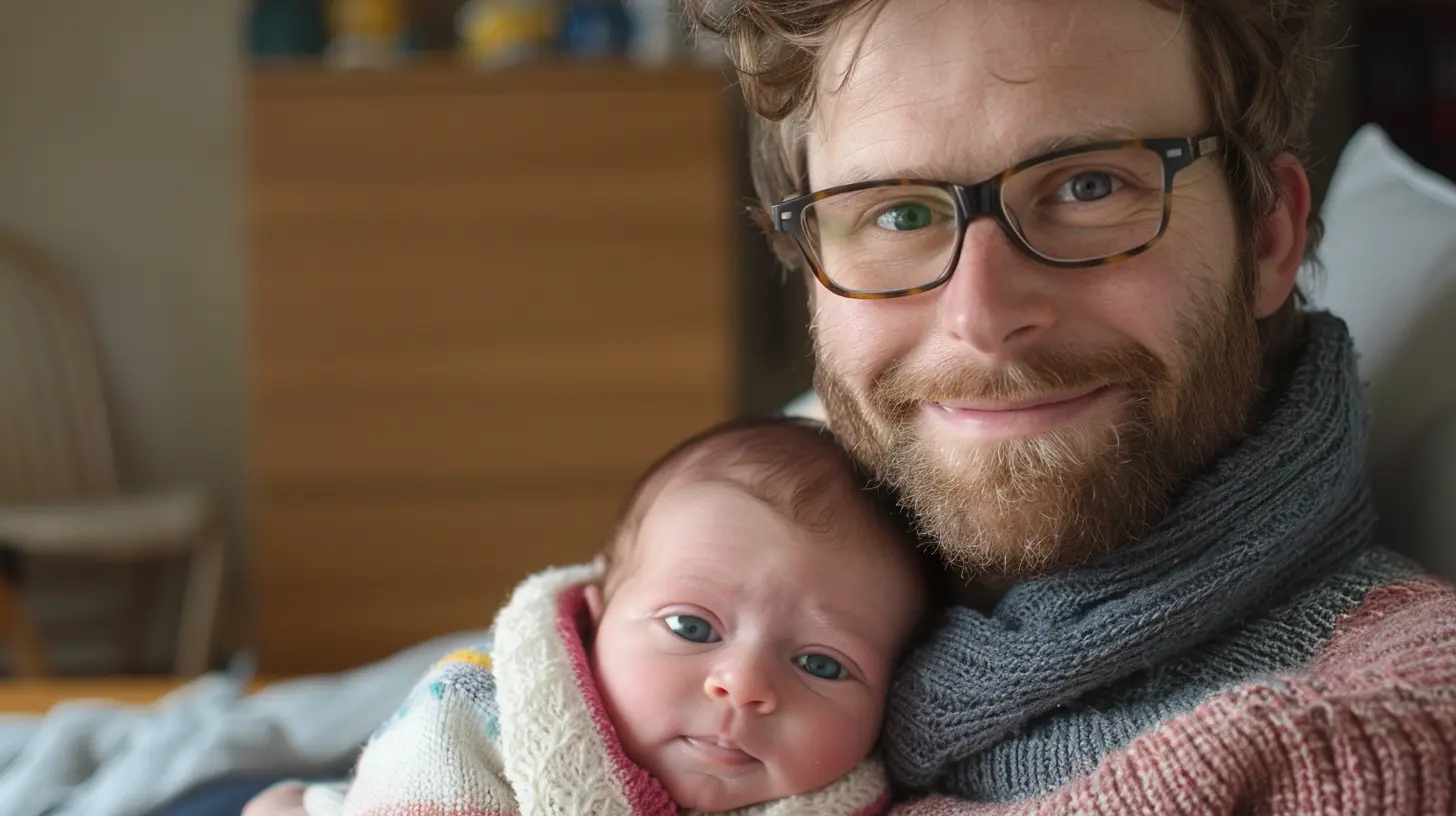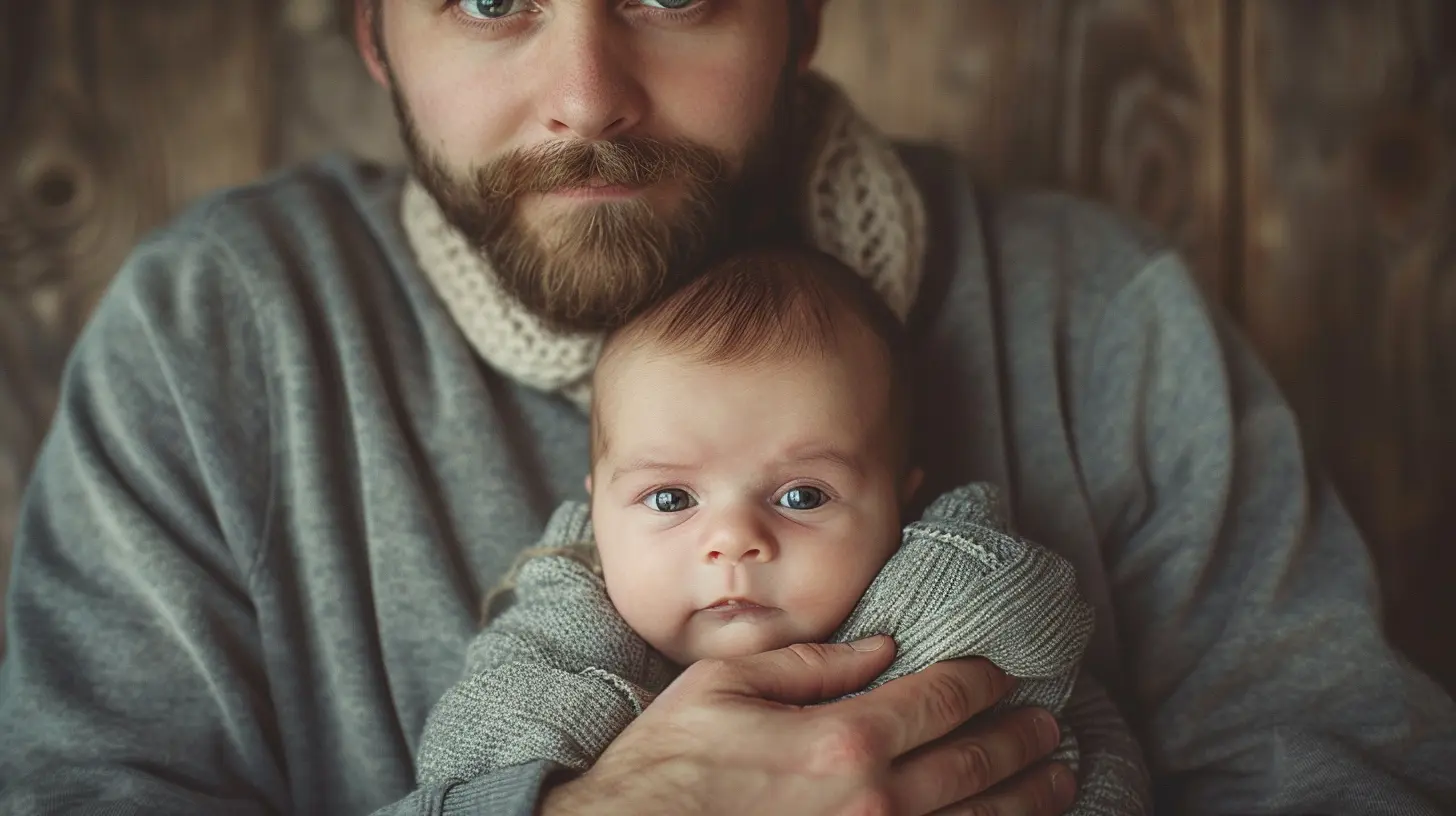The Benefits of Dads Taking Parental Leave
14 June 2025
Introduction
When we think about parental leave, the image that often comes to mind is a new mom cradling her newborn, adjusting to sleepless nights and endless diaper changes. But what about dads? In many households, fathers are expected to return to work almost immediately after their child is born while moms bear the brunt of early parenting alone.
But here’s the thing—dads taking parental leave isn’t just some feel-good idea; it's an essential part of raising healthier, happier families. More and more, research is showing that when fathers take time off work after the birth of their child, the benefits extend far beyond mere “bonding time.” It boosts child development, strengthens relationships, and even improves dads' mental health.
So, why aren’t more dads taking advantage of paternity leave? Social stigma, workplace pressure, and financial concerns often get in the way. But let’s flip the script and talk about why companies, families, and society as a whole should encourage dads to take that precious time off. 
1. Strengthening the Father-Child Bond
One of the biggest benefits of dads taking parental leave is the opportunity to build a strong, lasting bond with their child. Babies don’t just develop connections with their mothers—they need their fathers just as much.Newborns recognize their parents’ voices, scents, and touch from the very beginning. When dads are present during those crucial early weeks and months, they become a consistent source of comfort and security. What does that mean in the long run? Kids who have involved fathers from the start tend to develop higher self-esteem, better emotional regulation, and stronger social skills.
Think about it this way: bonding with your child isn’t just about holding them when they cry. It’s about the little moments—rocking them to sleep, changing diapers, singing lullabies, and simply being there. 
2. Helping to Share Parenting Responsibilities
Let’s be real—parenting isn’t just a one-person job. Moms shouldn’t be expected to do it all while dads head back to work as if nothing has changed. Taking parental leave allows fathers to step up and share the responsibilities that often fall disproportionately on mothers.From late-night feedings to burp sessions, diaper changes, and navigating the unpredictable sleep schedules of a newborn, dads who take parental leave get firsthand experience of what parenting really entails. This not only eases the burden on moms but also helps create an equal partnership from the very beginning.
A father who takes an active role in parenting early on is more likely to continue being involved as the child grows. And guess what? Studies show that couples who share parenting duties more equally tend to have stronger relationships and lower stress levels. 
3. Supporting Moms' Physical and Mental Health
Let’s talk about something that often gets overlooked: moms need support—physically, emotionally, and mentally—especially in the postpartum period.Pregnancy and childbirth take a serious toll on a woman’s body. Whether it’s recovering from a C-section, dealing with postpartum depression, or simply adjusting to the overwhelming emotional rollercoaster of new motherhood, having a supportive partner at home can make a world of difference.
When dads take parental leave, they can actively support their partners, helping with household chores, baby care, and just being there to listen and offer comfort. This support can lower the risk of postpartum depression and anxiety, creating a healthier environment for both mom and baby.
A mom who knows she isn’t carrying the entire load alone will have a smoother recovery, both physically and mentally. And a well-supported mother makes for a happier home. 
4. Reducing Gender Stereotypes
Let’s be honest—there’s still a lingering belief in many societies that raising children is "women’s work." But why should that be the case? Parenting is a shared responsibility, not a gender role.When dads take parental leave, they help break down these outdated stereotypes. They show their kids, their colleagues, and society as a whole that fatherhood is just as hands-on as motherhood. Children grow up seeing both parents as caregivers, which helps shape their views on gender equality from an early age.
And here’s an interesting twist—companies that support parental leave for dads often see a shift in workplace culture. More men taking leave leads to a more balanced work-life dynamic, encouraging gender-neutral policies that benefit everyone.
5. Boosting Child Development
Want to raise smart, emotionally secure kids? Start with involved parenting. Studies consistently show that children whose fathers take an active role in their early years tend to perform better in school, have fewer behavioral issues, and develop stronger communication skills.Why? Because engaged dads contribute to their child’s cognitive and emotional development. When a father is involved in reading, playing, and simply spending quality time with their child from infancy, it lays the foundation for critical thinking, problem-solving, and social skills later in life.
It’s kind of like planting the seeds for a thriving tree—the more nurturing and care a child receives early on, the stronger and more resilient they become as they grow.
6. Improving Dads' Mental Health
Fatherhood comes with its own set of challenges, and yet, discussions about dads' mental health often take a backseat. But here’s something important—taking parental leave can actually have a positive impact on a father’s emotional well-being.Work-related stress, lack of sleep, and the pressure to provide can take a toll on new dads. However, when fathers take time off, they get the chance to adjust to their new role at a more manageable pace. They can bond with their child without the added stress of balancing work deadlines and sleepless nights.
Additionally, dads who take parental leave report higher job satisfaction and overall happiness. They feel more connected to their families, which reduces feelings of isolation and burnout.
So, taking leave isn’t just good for the baby or mom—it’s an investment in a father’s mental and emotional well-being as well.
7. Strengthening Family Relationships
When both parents are actively involved from the beginning, the entire family dynamic strengthens. A dad who takes parental leave isn’t just changing diapers—he’s setting the tone for how the family will function moving forward.This level of involvement fosters deeper emotional connections between all family members. Children feel more secure, partners feel more supported, and even extended family members see a shift in how parenting responsibilities are shared.
And let’s not forget—the moments shared during parental leave create memories that last a lifetime. These are the days that shape the foundational bonds between a father and child.
8. Encouraging a Healthier Work-Life Balance
Work will always be there, but your child will only be a newborn once. Sadly, many dads feel pressured to return to work too soon, missing out on the most formative weeks of their child’s life.Companies that offer and encourage paid parental leave for dads are fostering a culture that values family just as much as productivity. And employees who take advantage of parental leave often return to work feeling more motivated, focused, and committed—because a well-balanced life leads to better performance in all areas.
Businesses that fail to support paternity leave risk losing talent to companies that do. Workplaces that prioritize family-friendly policies see higher employee retention, job satisfaction, and even increased productivity.
Conclusion
Dads taking parental leave isn’t just about spending a few extra weeks at home—it’s about reshaping the way we view fatherhood, work, and family dynamics. When fathers take an active role early on, everyone benefits: children grow up with more engaged parents, moms receive the support they need, and societal norms begin to shift toward true gender equality.At the end of the day, no dad should have to choose between being present for their child’s first moments and providing for their family. More companies and governments need to step up and make paternity leave both accessible and encouraged.
Because the simple truth is this—the time spent with a newborn is irreplaceable. And every dad deserves the chance to be there.
all images in this post were generated using AI tools
Category:
FatherhoodAuthor:

Kelly Snow
Discussion
rate this article
2 comments
Zealot Carter
Emphasizing the importance of dads taking parental leave fosters stronger family bonds, enhances child development, and promotes gender equality. Shared caregiving responsibilities create a nurturing environment for children to thrive.
June 22, 2025 at 3:33 PM

Kelly Snow
Absolutely! Dads taking parental leave not only strengthens family bonds but also contributes significantly to child development and promotes gender equality in caregiving. It's a win-win for everyone involved!
Rivenheart Mitchell
Dads taking parental leave fosters stronger bonds, promotes equality, and supports healthier family dynamics—essential for modern parenting.
June 17, 2025 at 4:25 AM

Kelly Snow
Thank you for your insightful comment! I completely agree—dads taking parental leave truly enhances family bonds and promotes a more equitable parenting dynamic.


